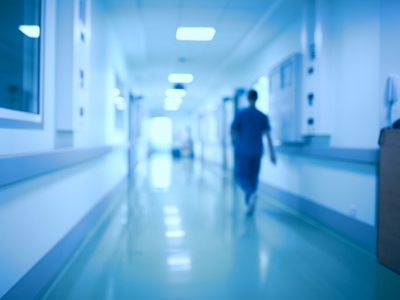Response to Patient 11 podcast investigation by Sky News and The Independent
Abuse team lawyers Alison Millar and Catriona Rubens say the Patient 11 podcast bears out the experience of their clients in many NHS settings and yet again shows that policy change is needed urgently
Posted on 03 February 2024
At Leigh Day, unfortunately, we have considerable experience of sexual violence cases occurring in healthcare, including in mental health facilities, as now exposed by Patient 11, a podcast investigation by Sky News and The Independent.
In 2021, we secured compensation for a woman who reported that she had been assaulted by a health care assistant who came into her room.
Such cases are not limited to mental health units: we have represented patients who have experienced sexual assaults in diverse settings, including sexual health clinics and GP surgeries, and in community-based treatment and care.
Last year, we interrogated our historic data in the context of another investigation into abuse in healthcare, carried out jointly by The Guardian newspaper and The BMJ (British Medical Journal). Over the five years to March 2023, our team dealt with at least 78 cases or substantial enquiries relating to sexual abuse in the NHS (this number was likely to be if anything an under-estimate). We have dealt with further cases in the past year.
As in this new investigation by Sky News and The Independent, this includes cases where assaults were perpetrated against patients both by other patients and by staff. We have also brought cases on behalf of staff members who had been harassed and assaulted by other NHS staff.
The NHS Constitution says that patients have a right to be protected from abuse and neglect, and care and treatment that is degrading.
So why is it that this latest investigation has found that very few NHS Trusts have implemented sexual safeguarding protections, and sexual safety incidents are on the rise?
Trusts have duties under Article 3 of the European Convention on Human Rights to ensure that allegations of sexual harm are properly and coherently investigated, but we are concerned that they are not being complied with.
Concerning themes that have come through from the work that we have done include difficulties in reporting complaints of sexual abuse, including complaints processes that are confusing, take too long and do not provide or signpost victims and survivors to sources of support they need while dealing with the aftermath of the trauma they have experienced.
We have seen medical evidence that clients have coped well with the initial sexual violence, but their mental health has deteriorated because of struggling to operate a complaints system that requires them to ‘drive’ the process themselves by chasing for updates, asking for timescales, and suggesting evidence that should be gathered, without any independent or internal support.
We have also been repeatedly concerned that trusts do not take sufficient immediate steps to safeguard patients at the beginning of their investigations into complaints of sexual abuse. In many cases in which we have acted, the perpetrators have been allowed to remain in the hospital, sometimes on the same ward as the client, after the complaint has been made. This has been hugely stressful and re-traumatising for our patient client.
This investigation by Sky News and The Independent rightly highlights the dangers of placing patients in mixed-sex wards and shared spaces.
The NHS Constitution pledges: “if you are admitted to hospital, you will not have to share sleeping accommodation with patients of the opposite sex, except where appropriate, in line with details set out in the Handbook to the NHS Constitution”.
This conditional commitment is not good enough where trusts then say (like in Patient 11) that “incidents like these occur due to the acute nature of the patients admitted”. This is exposing patients to a foreseeable and preventable risk of sexual violence. We are still getting complaints from female patients who have been assaulted in mixed-gender care settings. This should not be happening.
The responsibility and duty of care owed by trusts to patients should be more robustly backed up by clear sexual harm and violence prevention policies that are effective. It is unacceptable that Sky News and The Independent’s investigation found that only 14 trusts have carried out audits for sexual safety standards.
Trusts should carefully monitor and record data relating to incidents of sexual abuse, grooming and inappropriate sexual behaviour, and report this to a sexual harm prevention lead in the trust who has overall responsibility for ensuring that the occurrence of sexual abuse is minimal.
Trusts should also ensure that thorough and regular risk assessments are conducted for patients who may pose a risk of harm to other patients. The risk assessments of patients who display sexually inappropriate or predatory behaviour should also be shared with the trust sexual harm prevention lead.
We also believe that there needs to be better patient education and training for staff to spot signs of possible inappropriate behaviour by patients, coupled with a clear and easily accessible reporting procedure for both patients and staff who think another patient may pose a risk of harm or abuse.
It is unacceptable that “sexual safety incidents” in healthcare settings are on the rise. Patients are entitled to feel safe when they are most vulnerable. These incidents can have lasting consequences, impacting on the effectiveness of the treatment provided and potentially causing additional and lasting harm.
In response to the Independent and Sky News investigation, the Department of Health and Social Care has commissioned a national review into sexual abuse within mental health wards. The Health Services Safety Investigations Body will report by the end of 2024.
While further scrutiny is to be welcomed, the scale of the problem requires urgent action, and must not be kicked into the long grass. Wholescale cultural, regulatory and policy change is needed without delay, to safeguard patients and the integrity of our NHS inpatient services.




